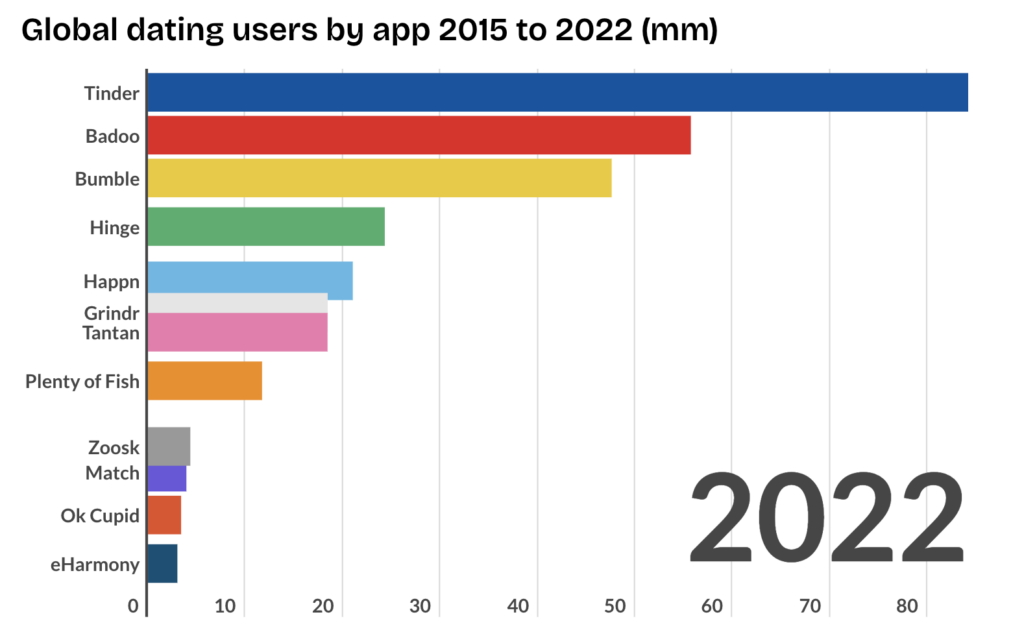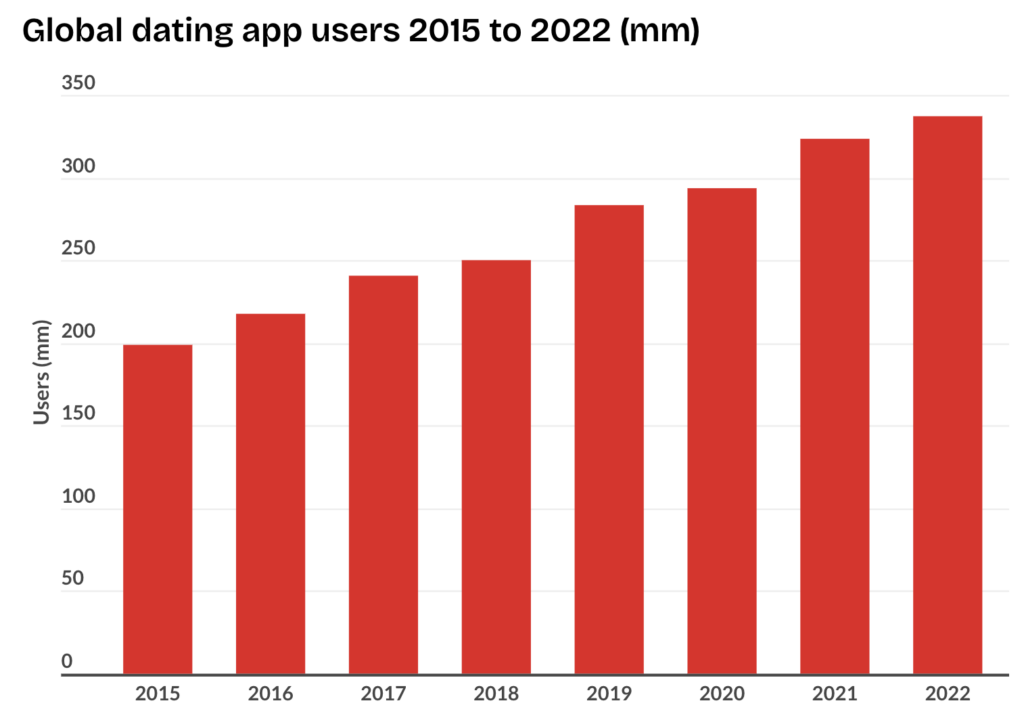In the realm of dating apps, ensuring user security and privacy is paramount. The emergence of online platforms has necessitated the integration of robust security features to protect user data and foster a safe environment for interactions. In this blog, we explore essential security features for dating apps that every dating app should incorporate to safeguard user trust and privacy.
Significance of Security Features in Dating Apps
Security features in dating apps play a pivotal role in safeguarding user data, ensuring privacy, and fostering a safe environment for meaningful connections. With the proliferation of online dating platforms, users entrust these apps with sensitive information, making robust security measures indispensable.
Importance of Establishing Trust in User Relationships
Establishing trust is fundamental in fostering successful user relationships within dating apps. Trust forms the cornerstone of user engagement, retention, and loyalty. Security features not only protect user data but also instil confidence, facilitating genuine interactions and long-term user satisfaction.
User Authentication and Verification
Two-Factor Authentication (2FA)
Security features for dating apps include integrating Two-Factor Authentication (2FA) to add an extra layer of security to user accounts. Thus now users require to verify their identity through a secondary method, typically via SMS, email, or authenticator apps. 2FA mitigates the risks associated with unauthorised access and enhances overall account security.
Enhancing Account Security with Multi-Step Verification
Multi-step verification processes involve a sequence of authentication methods beyond traditional username and password combinations. By implementing multi-step verification, dating apps reinforce account security and reduces the likelihood of unauthorised access, thus safeguarding user data and privacy.
Identity Verification
Implementing robust identity verification processes is crucial for ensuring the authenticity of user profiles and enhancing trust within the platform. By verifying user identities through various means such as ID scans, social media integration, or video verification, dating apps can mitigate the prevalence of fake profiles and promote genuine interactions.
Implementing Processes to Verify User Identities
Dating apps can employ various mechanisms, including document verification, facial recognition, and social media cross-referencing, to authenticate user identities effectively. By streamlining the verification process while maintaining security standards, apps can enhance user trust and credibility.
Balancing Security with User Experience
Prioritising security is paramount, but it is equally essential to ensure a seamless and user-friendly experience. Implementing user authentication and verification processes should be intuitive, non-intrusive, and seamlessly integrated into the app’s interface to enhance user satisfaction without compromising security standards.
Data Encryption and Privacy Measures
End-to-End Encryption
Security features for dating apps include end-to-end encryption to ensure user conversations and data transmissions remain secure and inaccessible to unauthorised parties. By encrypting data at both ends of communication, dating apps protect user privacy and sensitive information from potential breaches or interceptions.
Securing User Conversations and Data Transmission
Utilising robust encryption protocols such as SSL/TLS ensures secure data transmission between users and the app’s servers. By encrypting user conversations and data exchanges, dating apps mitigate the risk of data interception and unauthorised access, safeguarding user privacy.
Privacy Settings
Empowering users with comprehensive privacy settings enable them to control the visibility of their profiles, photos, and personal information. By offering granular privacy controls, such as profile visibility settings, photo sharing preferences, and location masking options, dating apps empower users to customise their privacy preferences according to their comfort levels.
Empowering Users with Control Over Their Information
Providing users with transparent and accessible privacy settings enable them to manage their personal information effectively. By allowing users to handle their privacy preferences and permissions, dating apps foster a sense of autonomy and trust, enhancing user satisfaction and engagement.
Strategies for Implementing Granular Privacy Controls
Implementing granular privacy controls involves offering users a range of customisable options to manage their privacy settings effectively. By incorporating features such as selective photo sharing, location-based privacy settings, and visibility controls for profile information, dating apps enhance user control and confidence in their interactions.

Fraud Prevention and Scam Detection
AI-Powered Fraud Detection
Security features for dating apps include leveraging AI and machine learning algorithms so that dating apps may detect and mitigate fraudulent activities effectively. By analysing user behaviour patterns, account activity, and communication dynamics, AI-powered fraud detection systems can identify suspicious behaviour and take proactive measures.
Leveraging Machine Learning to Identify Suspicious Activities
Machine learning algorithms can analyse vast amounts of data to identify patterns indicative of fraudulent or malicious behaviour. By continuously learning from user interactions and feedback, machine learning models can adapt and improve their fraud detection capabilities, enhancing the overall security posture of dating apps.
Scam Reporting Systems
Implementing robust scam reporting systems empowers users to flag and report suspicious accounts or activities within the platform. By encouraging user participation in identifying and reporting scams, dating apps foster a collaborative approach to maintaining platform integrity and user safety.
Encouraging User Participation in Keeping the Platform Safe
Promoting user awareness and engagement in platform security encourages active participation in identifying and reporting potential scams or fraudulent activities. By fostering a community-driven approach to security, dating apps create a sense of shared responsibility among users, enhancing overall trust and safety within the platform.
Streamlining Processes for Reporting and Addressing Scams
Efficiently managing scam reports and addressing user concerns in a timely manner is crucial for maintaining user trust and platform credibility. By implementing streamlined processes for scam reporting and resolution, dating apps demonstrate a commitment to user safety and foster a secure environment for meaningful connections.
Profile Verification and Moderation
Manual Profile Review
Employing manual profile review involves employing human moderators who examine user profiles thoroughly to ensure authenticity and compliance with community guidelines. This hands-on approach helps maintain the integrity of the platform and mitigates the presence of fake or misleading profiles.
Employing Human Moderators to Review Profiles
Deploying a team of trained moderators can effectively vet user profiles, detect suspicious activities, and take necessary steps to uphold platform standards. Human moderation adds a layer of scrutiny that automated systems may overlook.
Automated Profile Screening
Automated profile screening utilises algorithms and machine learning techniques to analyse user profiles and flag potentially fraudulent or inappropriate content. These automated systems expedite the moderation process, enabling swift identification and removal of fake profiles or suspicious behaviour.
Utilising Algorithms to Detect and Remove Fake Profiles
Implementing algorithms designed to detect and remove fake profiles help maintain the credibility and authenticity of the user base. By analysing various parameters such as profile completeness, activity patterns, and image recognition, dating apps can effectively identify and eliminate fraudulent accounts.
Secure Payment Systems
Secure Payment Gateways
Integrating secure payment gateways ensures that users can safely and confidently transact within the app. By partnering with reputable payment processors and implementing industry-standard encryption protocols, dating apps can protect user financial information and facilitate seamless transactions.
Ensuring Secure Transactions for Premium Features
Offering premium features within the app necessitates a robust payment infrastructure to safeguard user transactions. By encrypting payment data and adhering to PCI-DSS compliance standards, dating apps can provide users with a secure and frictionless payment experience.
Fraud Prevention in Payment Processing
Implementing fraud prevention measures during payment processing helps mitigate the risk of unauthorised transactions and fraudulent activities. By employing risk assessment tools, transaction monitoring systems, and real-time fraud detection algorithms, dating apps can proactively identify and prevent fraudulent behaviour.
Implementing Measures to Protect User Financial Information
Safeguarding user financial information requires implementing stringent security measures such as encryption, tokenisation, and secure storage practices. By prioritising the protection of sensitive data, dating apps can instil user confidence and foster trust in the platform’s payment ecosystem.

Regular Security Audits and Updates
Routine Security Audits
Conducting routine security audits involves assessing the app’s infrastructure, codebase, and data handling practices to identify vulnerabilities and security gaps. By engaging third-party security firms or internal audit teams, dating apps can proactively address potential threats and strengthen security.
Conducting Periodic Assessments to Identify Vulnerabilities
Periodic vulnerability assessments help dating apps stay ahead of emerging threats and security risks. By conducting thorough assessments of the app’s architecture and third-party integrations, developers can identify and remediate vulnerabilities before they are exploited.
Prompt Software Updates
Keeping the app’s software and dependencies up to date is essential for mitigating security risks associated with outdated components. By promptly applying security patches and software updates, dating apps can address known vulnerabilities and enhance overall resilience against cyber threats.
Keeping the App’s Infrastructure Secure with Regular Updates
Maintaining a secure app infrastructure requires ongoing monitoring, maintenance, and updates. By adhering to best practices in server management, network security, and data encryption, dating apps can fortify their defence’s and protect user data from unauthorised access or breaches.
Conclusion: Security Features For Dating Apps
In conclusion, integrating necessary security features is imperative for dating apps to establish trust, protect user privacy, and foster a safe environment for meaningful connections. By prioritising profile verification and moderation, implementing secure payment systems, and conducting regular security audits and updates, dating apps can mitigate risks and instil confidence in their user base.
Upholding high standards of security not only safeguards user trust but also reinforces the app’s reputation as a safe and reliable platform for online dating. By prioritising user safety and security, dating apps can enhance user trust, satisfaction, and long-term engagement within the platform.






